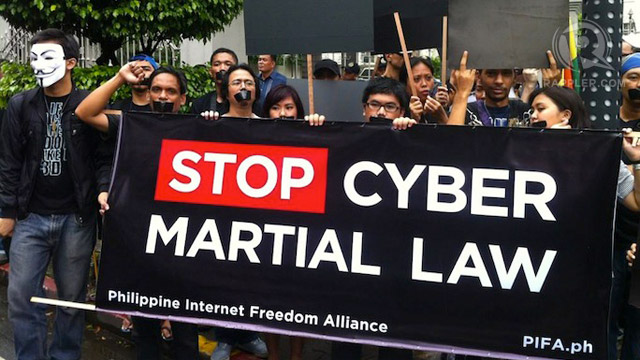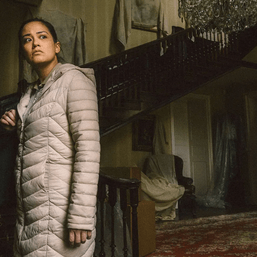SUMMARY
This is AI generated summarization, which may have errors. For context, always refer to the full article.

MANILA, Philippines – Let another round of debates on the cybercrime prevention law begin.
The Senate committee on science and technology, chaired by Senator Ralph Recto, will start deliberating cybercrime bills on Monday, March 3, two weeks after the Supreme Court (SC) upheld the constitutionality of most parts of the controversial measure, including online libel.
Senator Miriam Defensor Santiago, who earlier said the High Court erred in its ruling on e-libel, is requesting Recto’s committeeto prioritize her Magna Carta for Philippine Internet Freedom. It is crowdsourced bill that seeks to repeal Republic Act 10175 or the Cybercrime Prevention Act.
In a letter sent to Recto on Friday, February 21, Santiago said: “My bill was drafted by crowdsourcing on the Internet. In particular, my bill – in stark contrast to the Supreme Court ruling – in effect characterizes the crime of online libel as unconstitutional, because the provision violates both the ‘void for vagueness’ and ‘overbreadth’ doctrines in constitutional law. Moreover, the Supreme Court ruling appears to go against the global inclination to decriminalize libel.”
Santiago criticized the SC ruling for being vague, in particular, on provisions concerning online libel.
Santiago said in an earlier interview: “Of course, the Supreme Court said it is only the sender who is liable, not the person who is commenting or who is receiving. But what do these words mean? Who is the sender? The service provider? The individual netizen? Or if they’re a group, how do we identify them? Or even worse, if they are not using their true identities, how are you going to go beyond what they profess to be their identities on the Internet? That is the main problem today.”
Plugging the loopholes.
In its decision, the Supreme Court junked the legality of spam, real-time collection of traffic data, and the so-called automatic take-down clause, which would have allowed the government to restrict access to a website that is the subject of a complaint, even without a court order.
Santiago said her bill will plug loopholes in the cybercrime law.
Among the improvements proposed in the crowdsourced bill are:
- Instead of collecting real-time data, the bill imposes strict guidelines for the collection of any data, including the securing of warrants, obligating notification, and limiting seizure to data and excluding physical property.
- Instead of a “take-down clause,” the bill provides for court proceeedings in cases where websites or networks are to be taken down.
- Prohibits “double jeopardy,” where people can be persecuted both for violations against the Act and under the Revised Penal Code.
If passed into law, the bill will be the first law to be created through crowdsourcing, according to Santiago.
Recto said the Senate will summon key government officials to present their official position regarding the measure during the March 3 hearing.
The proceedings will be broadcast live on the Senate website. – Rappler.com
Add a comment
How does this make you feel?














There are no comments yet. Add your comment to start the conversation.